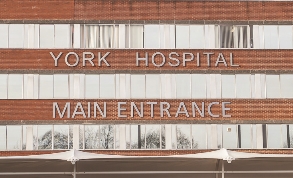NHS companies: moving on?
 Claims of NHS privatisation and tax avoidance are a heady cocktail – politically difficult for any government and guaranteed to grab the headlines. So, with growing discomfort in the Department of Health and Social Care about the ‘noise’ from trusts creating wholly owned subsidiaries, it was unsurprising that NHS Improvement stepped in last month to order a pause in plans to create new subsidiaries or alter existing ones.
Claims of NHS privatisation and tax avoidance are a heady cocktail – politically difficult for any government and guaranteed to grab the headlines. So, with growing discomfort in the Department of Health and Social Care about the ‘noise’ from trusts creating wholly owned subsidiaries, it was unsurprising that NHS Improvement stepped in last month to order a pause in plans to create new subsidiaries or alter existing ones.
NHS Improvement will consult on a new regulatory approach to NHS wholly owned subsidiaries this month, and new guidance will follow. The Department has already announced that it intends to alter its transaction guidance during this financial year to make the proposed creation of subsidiaries a reportable transaction to NHS Improvement. It says this will make all subsidiaries visible to the regulator and allow it to seek assurances that risks had been identified and assessed.
The unions are delighted with the moratorium. Unite national officer Colenzo Jarrett-Thorpe says: ‘We believe this is in the best interests of patient safety and our members who wish to remain employed by the NHS and not outsourced to an outfit where their pay and employment conditions could be seriously eroded.’
Under local opposition, some trusts had already abandoned their plans for wholly owned subsidiaries. They include University Hospital of Leicester NHS Trust, which dropped its plan to create a subsidiary for
its estates, facilities, procurement and supplies services after reportedly being told that the move would not be accepted by the health and social care secretary.
Wrightington, Wigan and Leigh NHS Foundation Trust ended its estates, facilities and procurement subsidiary plan, which was due to save £2m a year, after the local council stepped in with a promise to bridge the financial gap.
Leeds Teaching Hospitals NHS Trust had proposed to set up a subsidiary for estates and facilities. However, in July, chief executive Julian Hartley told a board meeting that it would not transfer any staff into a wholly owned subsidiary during this financial year. ‘We will continue to explore alternative models to help us meet the significant financial challenges we face,’ he said.
Despite the recent controversy, NHS subsidiary companies are not new – some have been around for more than a decade. Both foundation and NHS trusts can establish wholly owned subsidiaries, though it is more complicated for the latter as they must first secure the agreement of the regulator NHS Improvement and the Department of Health and Social Care.
Though wholly owned by the NHS, they are registered at Companies House and are governed by a board that includes senior executives from their owner trust or trusts.
Wholly owned subsidiaries are primarily used for back-office services such as estates and laundry, as well as outpatient pharmacy. The companies sell the services back to the trust.
Sometimes they are set up to exploit the commercial worth of research and innovation in trusts – a new type of prosthesis or skin creams, for example.
Generally, they are 100% owned by a single trust. There are other types of companies – including joint ventures with non-NHS public sector bodies and commercial organisations – but these are not wholly owned by the NHS.
Set up in 2005, Salisbury NHS Foundation Trust’s Odstock Medical, which supplies devices to support rehabilitation in patients who have lost limb movement, is widely regarded as being the first NHS wholly owned subsidiary. The trust now has two wholly owned subsidiaries. Until recently the number of NHS wholly owned subsidiaries was growing relatively slowly. According to the government, there were 42 in March 2017.
However, in the past year interest has swelled. With this there has been a rising tide of opposition from unions – a factor in the pause ordered by NHS Improvement.But why do trusts wish to set up wholly owned subsidiaries and why have they become so controversial? Healthcare Finance spoke to a number of finance directors – who do not wish to be named – of trusts that have established wholly owned subsidiaries or are hoping to do so. All say their interest in creating subsidiary companies is at least in part the result of austerity and the need to deliver recurrent cost improvement plan (CIP) savings.

Adam Wright (pictured), senior policy officer at NHS Providers, says there are several reasons for trusts to explore the potential benefits of wholly owned subsidiaries. For many trusts, there is little alternative.
‘For some, but not all, this represents a cost saving opportunity as well as potential income generation. The low hanging fruit is gone and now they have to look at how they run some of these services to provide best value.’
But while a wholly owned subsidiary means a cost improvement programme for some trusts, for others it is one solution to workforce challenges. This is particularly true of those outside the capital and other large urban areas, he says. ‘A lot of wholly owned subsidiaries, particularly for estates functions, are being set up because the NHS needs to compete with non-NHS companies for staff in these areas.’
Existing staff are transferred to the subsidiary under TUPE rules and retain their Agenda for Change contracts and NHS pension rights. However, flexibility in terms and conditions has allowed subsidiaries to offer existing and new staff higher pay in return for a non-NHS pension with lower employer contributions. In the case of existing staff, accepting such an offer would mean moving off Agenda for Change pay scales.
‘A wholly owned subsidiary has more flexibility over staff incentives, pension benefits and overall remuneration package,’ Mr Wright says. ‘Finance directors in trusts outside London will say that Agenda for Change is good for staff overall. But for graduates in non-healthcare roles – for example building surveyors – it’s not as attractive as the private sector can flex its terms and conditions unlike Agenda for Change.’
One finance director says Agenda for Change does not recognise the true local cost of living, including buying a house. ‘The reality is you cannot recruit staff for love nor money. A wholly owned subsidiary will allow us to offer different packages that attract people – it’s not about destabilising or eroding existing terms and conditions; it’s about doing something to address the gap.
‘Some younger people need more money now, but I believe NHS subsidiaries have a moral obligation, as well as a legal obligation, to provide a good pension scheme.’
In a few cases, trusts can turn to wholly owned subsidiaries to help facilitate new models of care, Mr Wright says. ‘Some trusts we have spoken to are considering using the wholly owned subsidiary model to collaborate with external partners to run services differently. This could include working with GPs who wish to become part of the trust but do not want to become salaried employees on Agenda for Change terms.’
VAT issues
Flexibility on pay is one of the key commercial benefits named by trusts in their business cases, potential VAT savings another.
VAT is a difficult and complex area. Generally, much of the healthcare activity trusts carry out is exempt from VAT under a general exemption. This means VAT incurred on expenditure related to those services, including outpatient pharmaceuticals, is also not recoverable. On the face of it, NHS bodies therefore pay 20% more for those goods than VAT-registered commercial providers.
The Treasury argues that the NHS is funded to pay these taxes, which are paid to the Exchequer and then back to the NHS in a circular flow.
NHS bodies can recover VAT in some circumstances through the contracted-out services mechanism, which is worth around £2bn a year to the NHS, according to the Department of Health and Social Care. However, wholly owned subsidiaries are not subject to the contracted-out rules and would therefore be able to recover VAT in a wider range of circumstances.
Unions believe wholly owned subsidiaries seek to circumvent the rules on contracted-out services. A wholly owned subsidiary dedicated to providing outpatient pharmacy would be able to reclaim the VAT on drugs and devices dispensed, for example, which an NHS run outpatient pharmacy would not. A trust could also save on VAT if capital projects are carried out by a wholly owned subsidiary – potentially a significant sum.
With concern rising over tax avoidance, the Department intervened a year ago. A letter to provider finance directors asked ‘careful consideration’ be given to any contractual arrangements that give rise to tax advantages. No scheme should be considered if it is solely to gain a tax advantage as this would amount to tax avoidance, contrary to the requirements of HM Treasury’s Managing public money.
This was welcomed by opponents of wholly owned subsidiaries, but they remain concerned due to one sentence in the letter: ‘If there are genuine commercial reasons for entering into contracts which, as a by-product, have a tax benefit this is considered acceptable.’
Critics believe this leaves the door open for trusts to target VAT savings. However, finance directors say wholly owned subsidiaries are chiefly about implementing new, more efficient delivery models that are in line with the mood for greater collaboration.
Even so, they acknowledge that tax savings can be a factor. One says: ‘There’s no doubt VAT is a big driver for a lot of people, but there are other benefits. Finding savings in the CIP is getting ever more difficult, but we found that giving our estates function the opportunity to run their own services gave them the incentive to get rid of some bureaucracy. They are also able to go and win business outside the trust to generate a financial return.
Another adds: ‘We would be doing this even if we couldn’t get the VAT benefit. Many trusts are looking at wholly owned subsidiaries to address the issue of skilled workforce shortages and this issue won’t go away.’
A further criticism is that creating wholly owned subsidiaries is privatisation by another name and with that comes concerns about a two-tier workforce, pension rights and erosion of other employment terms.
Unison says: ‘There is a consensus across the NHS that a two-tier workforce is not in anyone’s interests. The national pay system under Agenda for Change is a strength that should not be bypassed by trusts that feel unable to use the flexibilities it provides.
‘Unison believes that strong management will always work in partnership and consult properly with staff to find better solutions, rather than attacking workforce terms and conditions as a counterproductive shortcut.’
Any alternatives?But could the benefits of wholly owned subsidiaries be gained without creating these companies? Finance directors say subsidiaries can give fresh impetus to savings plans. ‘It’s a legitimate question,’ says one. ‘We know we aren’t doing anything we couldn’t do previously – but in reality it was getting more and more difficult to find savings under the old structure.’
Subsidiaries do not have to adhere to NHS mandatory training, but give training only as appropriate, add the directors. ‘If you are a porter do you need to do everything, including information governance training, when our porters don’t use computers?’
A further benefit is that more management time can be devoted to the services provided by the wholly owned subsidiary. One finance director who sits on a subsidiary board, says: ‘A senior estates and facilities manager will sit through a board meeting for two hours a month and, if they are lucky, 1% of the time will be devoted to the services they manage. If you have a wholly owned company that talks only about estates and facilities, it might make different and better decisions.’
Some trust finance leads are incredulous at union opposition to their trust plans, as a wholly owned subsidiary is a more palatable alternative to outsourcing or job losses.
Far from being a step towards privatisation of NHS services, NHS Providers’ Mr Wright agrees that wholly owned subsidiaries are a way of keeping staff in the health service.
‘The alternative is to outsource to the private sector because of the way the VAT rules are structured, which make it cheaper for non-NHS providers. Some have argued it is a form of privatisation, but it’s the complete opposite. The options are: a wholly owned subsidiary, outsourcing or a risk to jobs.’
Wholly owned subsidiaries also offer an opportunity to move staff inside the health service rather than seeking an outsourced deal at the end of contracts, he adds.
The scope of NHS Improvement’s review of its regulatory framework remains to be seen and critics will hope it makes wholly owned subsidiaries less attractive. But with trusts under pressure to make more recurrent savings, they will be pressing for little change – or an alternative.
One finance director says: ‘I think the centre is nervous about wholly owned subsidiaries, but we need to make savings and I don’t see anyone coming up with a better idea'
- An HFMA briefing on wholly owned subsidiaries highlights issues for trusts that have set up the companies, and examines governance and financial issues.
Despite the pause announced by NHS Improvement, York Teaching Hospital NHS Foundation Trust is due to go ahead with its new wholly owned subsidiary this month.
A spokesperson for the trust said the moratorium did not affect the company. With a small number of exceptions, all the services provided by the estates and facilities directorate will transfer to a limited liability partnership on 1 October, a spokesperson said.
Unite members at the trust took industrial action in the week before the transfer. Chris Daly, Unite lead officer for health in Yorkshire, says: ‘This is an act of arrogance considering the direction given by NHS Improvement that a pause needs to be instituted in setting up such subsidiaries, while a review takes place in October.
‘This is a snub to NHS Improvement with its influential national remit. There is still time for the trust to row back from its ill-considered proposal to transfer staff out of the NHS family.’
However, the trust says the move will be beneficial and avoid the need to outsource.
‘The way the trust operates estates and facilities has not changed for many years and with the continued financial pressure across the NHS, both nationally and locally, it is becoming increasingly difficult to maintain the standards that we aspire to for these essential services,’ the spokesperson says.
‘If we do nothing, the pressure to reduce budgets further will inevitably continue and there will be the very real risk that the trust will need to put estates and facilities services out to tender. By creating an LLP, we can access the commercial benefits enjoyed by the private sector while keeping these services under the ownership of the NHS.’
Potentially, the subsidiary will generate additional income by attracting further contracts from outside of the trust.
The spokesperson adds: ‘As part of our cost improvement plan, this arrangement will allow more flexibility to negotiate on a local basis and therefore achieve efficiencies and cost effectiveness.’Related content
We are excited to bring you a fun packed Eastern Branch Conference in 2025 over three days.
This event is for those that will benefit from an overview of costing in the NHS or those new to costing and will cover why we cost and the processes.